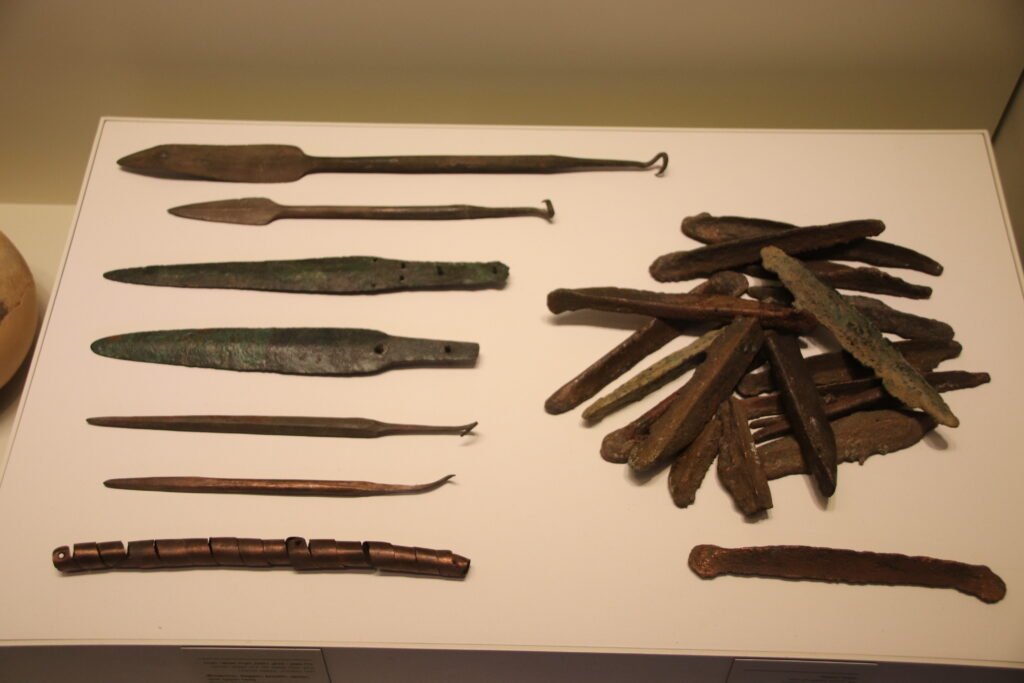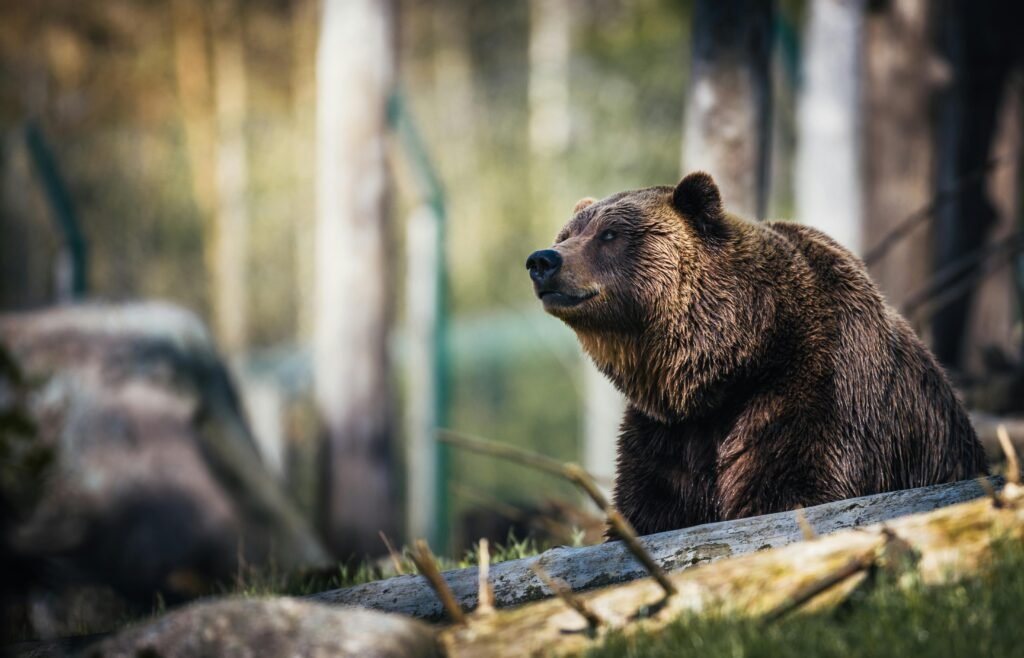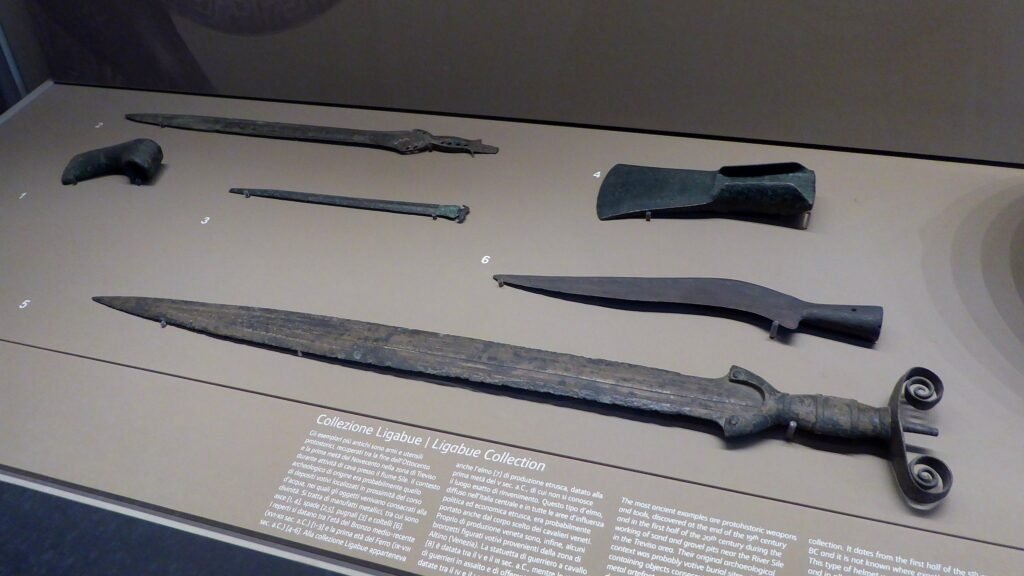BEARING IN BRONZE AGE
The Root *bher and Its Two Meanings
The root *bher has two distinct meanings:
- “To bear or carry.”
- “Bright or brown.”
At first glance, it’s not obvious how these meanings are related. However, looking into the Bronze Age might help us understand this connection.
The Bronze Age
The Bronze Age, which lasted from around 3300 to 1200 BC, is named after the metal bronze. During this period, bronze was the primary material used for making tools, weapons, and other essential items. The color of bronze is brown. So, in the Bronze Age, people constantly had to carry brown-colored bronze items. This historical context might link the two meanings of *bher: carrying (from the first meaning) and brown (from the second meaning).

The Wild Animal Bear
I was curious about how two words that are totally similar in spelling could mean completely different things. A prominent example of this is the word “bear.” In English, “bear” can mean both to carry something and to refer to a wild animal. The connection between these meanings becomes clearer when considering the Bronze Age analogy.

In Old English, the term “bear” (bera) was used to describe the animal. The name likely reflects the brown color of the bear rather than directly referring to the animal itself. This might be because the animal was so feared that people avoided saying its name directly. Instead, they used a term reflecting its color.
In summary, “bear,” meaning to carry, came from the first meaning of the root *bher. On the other hand, the word “bear,” which refers to the animal, came from the second meaning of *bher, which means bright or brown. Here, the bright or brown refers to the color of the animal itself.
Ferrum (Latin for Iron)
After the Bronze Age came the Iron Age. So, eventually, all tools and weapons were replaced with iron. Now, you needed to always carry iron.
From this notion, the word ferrum comes. Ferrum is the Latin word for iron. It is from the root bher, which means to carry. So it means “the thing which is always carried.” Now, the thing you are always carrying in the Iron Age is called ferrum.

The animal named “ferret” also comes from the same origin. Ferrets are known for their inquisitive and playful nature, often “stealing” small objects and hiding them. Since they are always carrying things, they are called ferrets.
Most of the names in biology that contain phora or fera at the end refer to something that carries.
- Porifera: Here, “pore” means hole. The name is given because the animals of this phylum carry holes in them, which are necessary for the transportation of food and oxygen.
English Use Cases of the Fer Suffix
Many English words also have the fer suffix, which conveys a sense of carrying.
- Transfer
- Meaning: To carry across.
- Explanation: The word “transfer” comes from the Latin transferre, combining trans- (across) and ferre (to carry). It literally means to carry something from one place to another. In everyday usage, it can refer to moving physical objects, but it also applies to intangible things like transferring knowledge or responsibility.
- Confer
- Meaning: To carry together.
- Explanation: “Confer” originates from the Latin conferre, where con- means “together” and ferre means “to carry.” When people confer, they bring together their ideas, often in a discussion or meeting. It’s a word that carries the essence of collaboration and shared thought.
- Refer
- Meaning: To carry back.
- Explanation: When you refer to something, you carry the subject back to a source, such as when you refer to a book or a person for information. It’s about directing someone back to a reference point.
- Defer
- Meaning: To carry away.
- Explanation: In modern English, it often means to postpone or delay, essentially carrying the decision or action away to a later time. It can also mean to yield or submit to another’s judgment, carrying your authority away in favor of theirs.
- Prefer
- Meaning: To carry forward.
- Explanation: To prefer something is to carry it forward in your choice, placing it before other options. It’s about giving one thing a position of priority over another.
Fertile
The word “fertile” describes the ability to carry or bear life. For example, fertile soil is soil that can carry and support the growth of plants, meaning it has the nutrients and qualities needed to bear life. Similarly, a fertile animal or person has the ability to produce offspring, carrying and nurturing new life.
